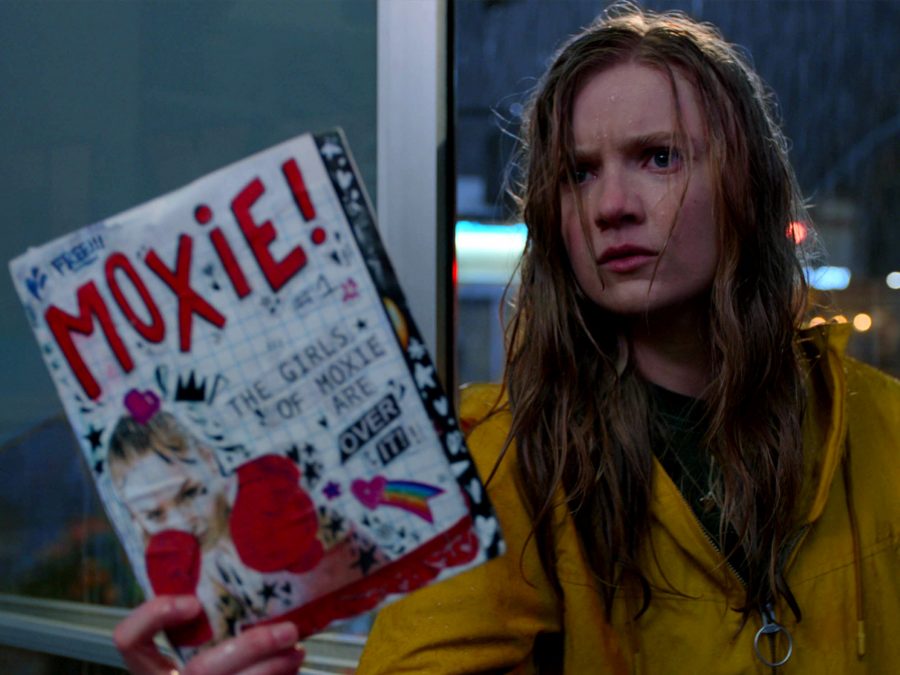Amy Poehler’s second feature behind the camera misses the mark in its search for humour and solidarity.
You would not be amiss for thinking Moxie is a horror film from its opening sequence. It turns out Vivian (Hadley Robinson) running through dark woodland unable to scream for help was a just nightmare. In fact, the film makes a case for a new type of horror: one that unearths the terrifying reality of being a young woman in a toxic high school environment.
Adapted from Jennifer Mathieu’s 2017 young adult novel of the same name, Moxie is a formulaic teen drama that, given Amy Poehler’s involvement as director, is disappointingly unfunny. “It’s so nice not to be on anyone’s radar,” Vivian declares, floating anonymously through corridors beside her childhood bestie Claudia (Lauren Tsai). This invisibility becomes her secret weapon when, inspired by the revolutionary lyrics of Bikini Kill’s ‘Rebel Girl,’ her mother’s (Amy Poehler) past activism, and the frankness of new student Lucy (Alycia Pascual-Peña), Vivan begins designing and distributing a feminist zine (designed by artist Nina Charuza) to her school peers incognito.
The zine kickstarts a revolution that sees the students unite in protest of the school’s dress code and rebel against their ineffectual principal. Tellingly, however, it is the Black, disabled and trans women who do the groundwork; reporting on the insidious actions of their male peers. Vivian takes these experiences as her own to reshape, morph and collage for the zine. It is a misjudgement that the film never calls into question this purloined ownership in its exploration of allyship and young womanhood.

Fuelled by her newfound passion and frustration at the slow pace of change, a fire is ignited in Vivian. The flames end up burning those closest to her, including Claudia who is cautious not to endanger all that her immigrant parents sacrificed for her. In attempting to navigate Vivian’s position of white privilege, Moxie does little more than to simply point it out. The film is a springboard for some meaningful conversations but fails to take the necessary steps to fully address these issues.
Moxie’s female cast, meanwhile, inhabit their roles with conviction. In one scene, as their harassers are applauded, the camera flickers between their faces, capturing their visible devastation and rising determination in a single moment. Poehler, along with screenwriters Tamara Chestna and Dylan Meyer, plots a likeable but flawed high school drama, one all-too aware of today’s socially-conscious, post-#MeToo youth movement.
Despite its personal and pertinent narrative, Moxie fails to confront its core ideas of privilege and allyship. The film is so overt in its aims, it loses authenticity. In attempting to position itself alongside recent coming-of-age crowd-pleasers Eighth Grade, Lady Bird and Booksmart, Poehler’s film ultimately struggles to find its own voice.
Published 3 Mar 2021
A coming-of-age film from Amy Poehler.
Fails to confront its core ideas of privilege and allyship.
A likeable but flawed high school drama.

Greta Gerwig’s non-judgemental approach makes Lady Bird’s relationship with Kyle so relatable.

Beanie Feldstein and Kaitlyn Dever shine in a Superbad-esque high school comedy to savour.

Four female writers pen personal messages to their mothers in response to Greta Gerwig’s affecting film.